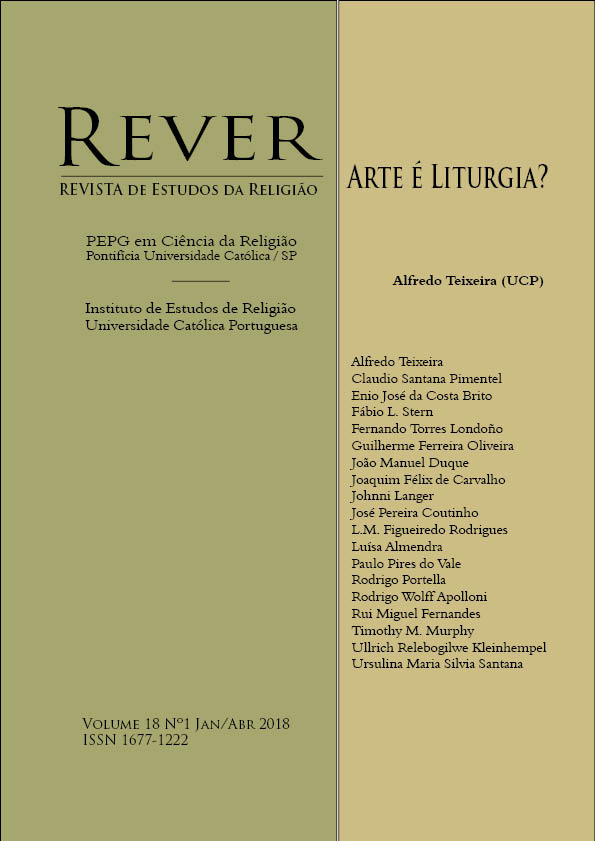Between aesthetics and politics: João Madureira's “Magnificat” religious memory
DOI:
https://doi.org/10.23925/1677-1222.2018vol18i1a4Keywords:
Religious memory. Musical aesthetics. Cultural transmissionAbstract
This study is part of research topic that seeks to characterize the aesthetic uses of religious memory in contemporary culture. The object of the study is the musical work "Magnificat, or the non-submissive voice" by João Madureira (2014), doubly contextualized: within the framework of an exposed program in which the work is integrated, and in the confrontation with other exegetical readings of the proto-Christian text. The study shows that the composer privileges the political semantics of the text. Compositional work follows the path of a universalization of the message, unrelated to the communitarian, ritual and prayerful habitat that characterizes their religious experience. In this operation, the composer becomes, nevertheless, agent - with autonomy - of a process of cultural transmission of a religious memory.
Downloads
Published
How to Cite
Issue
Section
License
Authors who publish in this journal agree with the following terms:- Authors retain copyright, but grant the journal the right of first publication, with the work simultaneously licensed under the Creative Commons BY-NC License.
- Authors are authorized to assume additional contracts separately, for non-exclusive distribution of the work published in this journal (e.g., publishing in an institutional repository or as a book chapter), as long as with acknowledgment of authorship and first publication in this journal.


